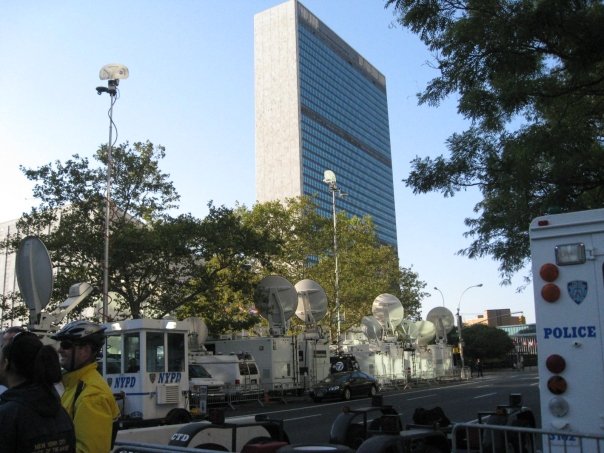Transparency Goes Global: the Open Government Partnership

Happy opening day of the UN General Assembly, folks! While half of Manhattan grumbles about the traffic snarls caused by an endless stream of motorcades, I always enjoy watching the pomp and protocol of the General Debate. But while the “will they or won’t they” of the Palestinians at the Security Council steals the big headlines, yesterday also brought big news in government transparency: the Open Government Partnership. At last year’s General Debate, President Obama announced that “In all parts of the world, we see the promise of innovation to make government more open and accountable.” The Open Government Partnership brings together eight founding countries to help fulfill that promise. They’ve developed initiatives to improve the availability of government information, support increased civic participation, and develop new technologies for sharing and accountability. The first projects under development include real-time expense reporting in Brazil and a citizen water reporting in Tanzania – and 38 additional countries have pledged to develop their own openness plans. Here at NDITech, we love government transparency – generally speaking, tools that help citizens access their representatives and hold them accountable help improve government services, reduce corruption, and strengthen democracies. Even in countries with limited Internet connectivity, putting information online helps journalists, civil society groups, and opposition parties track government officials and report on their effectiveness.
I’m also looking forward to what election data projects might come out of OGP. We’ve helped build sites to publish voting data in both Nicaragua and Afghanistan, for example, and initiatives that make election information more available and accessible would go a long way toward improving trust in elections officials and simplify external monitoring and verification efforts by groups like Global Network of Domestic Election Monitors members. OGP could also help elected officials publish more information about their activities. Chris Doten has been working with the Liberian Parliament build a website, and the NDI Uganda team partnered with Gov2U to build a platform for the Ugandan Parliament where citizens can interact with their representatives and follow what’s happening in the legislature, for example. In short, I’m excited that the partnership’s flexibility means governments can choose projects and methods according to local demand, and I hope we’ll see initiatives that help build on the work we’ve been doing here at NDI. Stay tuned…
